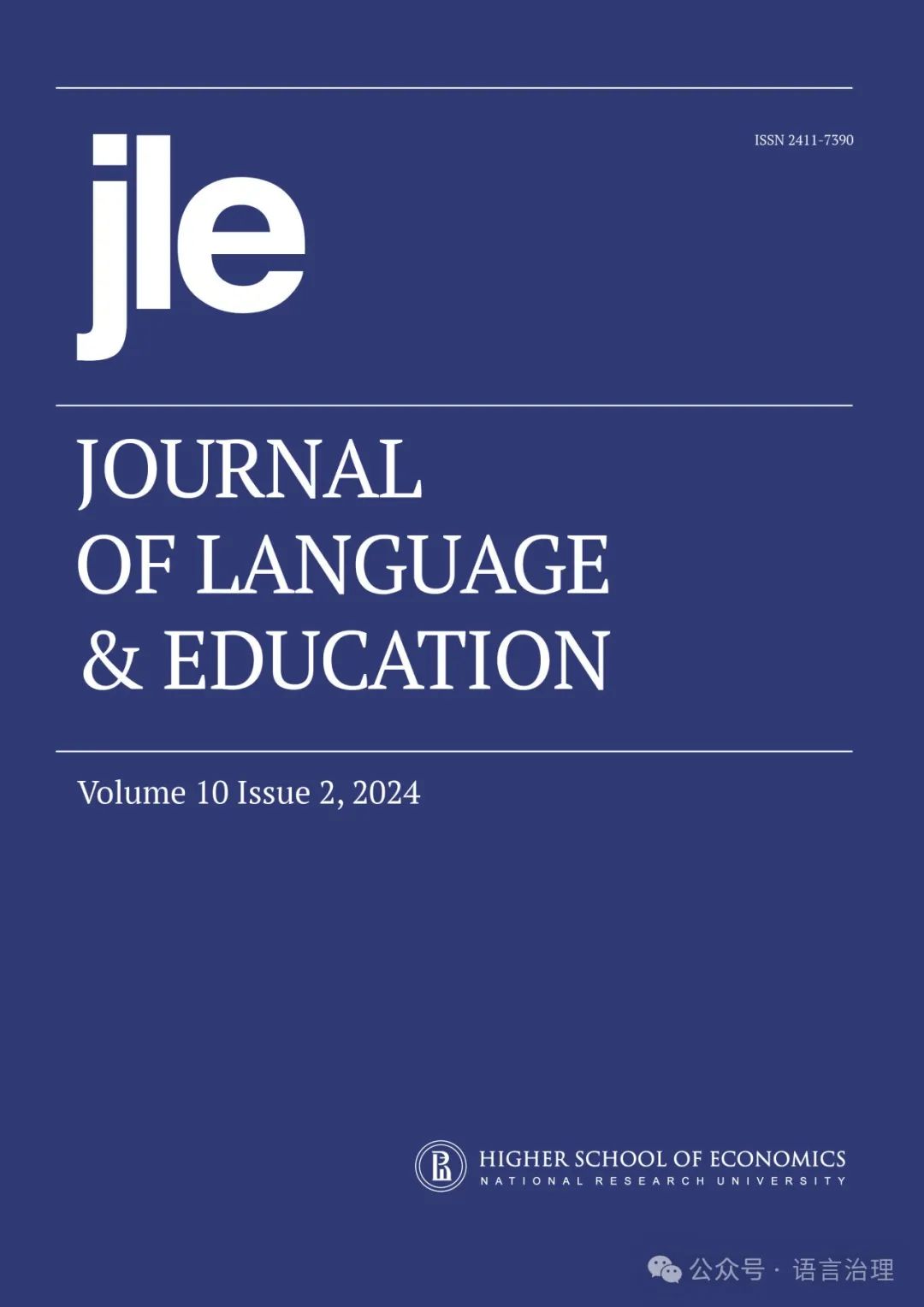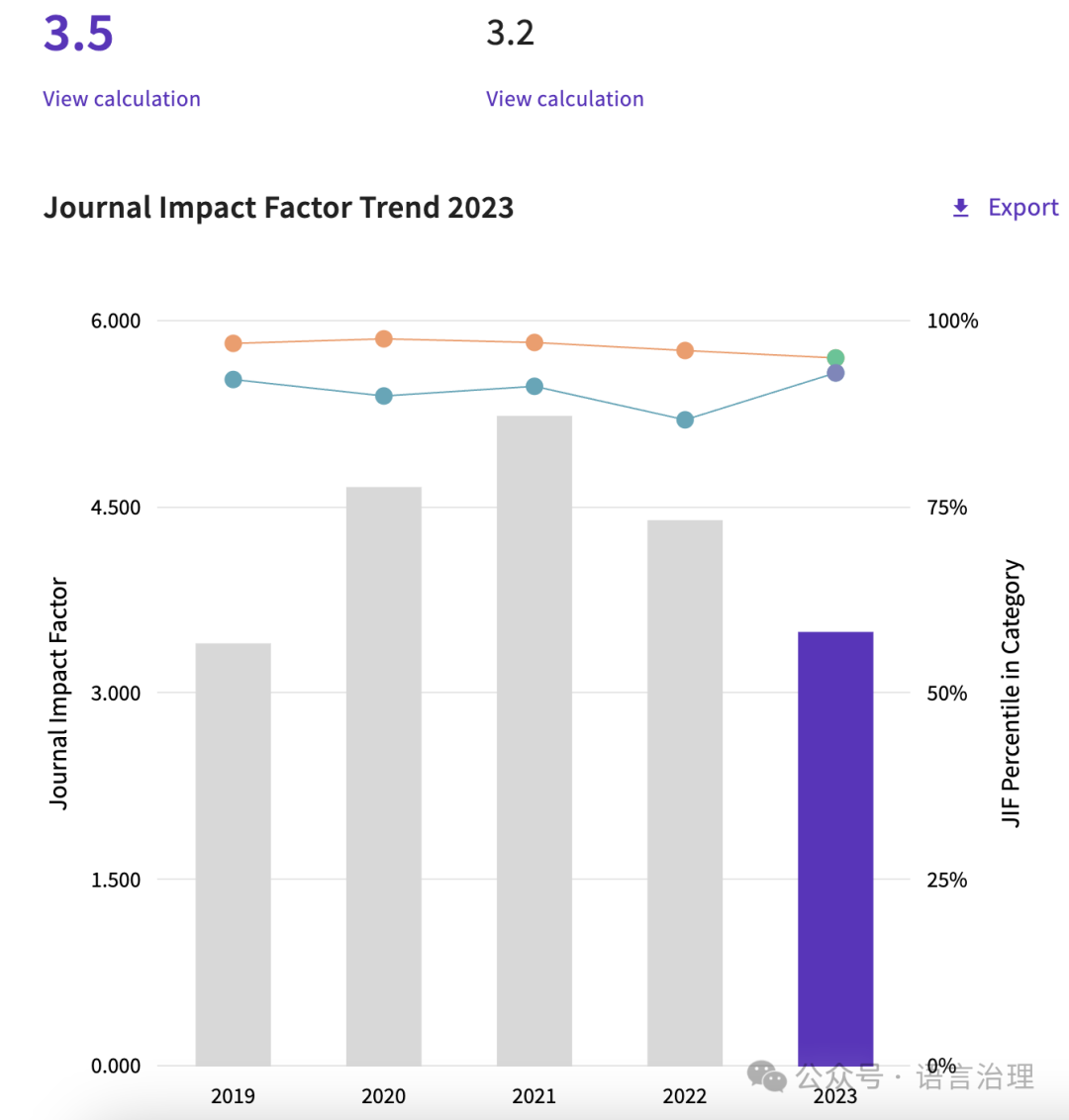ESCI 期刊 Journal of Language and Education 专题征稿
2024年08月31日 00:00 陕西
期刊简介 本刊由俄罗斯国立研究大学高等经济学院出版的高质量开放式同行评审国际期刊,每季度出版一期。JLE 为研究人员、学者、专业人士和从业人员提供了一个平台,以高质量的实证和理论研究论文、试点研究、观点论文和评论(范围界定/系统性评论、荟萃分析和书评)的形式传授和分享知识。
该期刊提供有关学术交流的国际性同行评审信息来源,并对语言和教育相关问题进行特写,涵盖学术和学术写作、出版写作、科学编辑、学术和学术文本的规范模式和非标准不规范性、英语作为辅助语言(EAL)等领域和问题、 英语作为通用语言和多语言、扫盲经纪、期刊写作惯例、学术写作的结构和论文驱动方面、研究的可读性、写作自信的自我意识、出版规范、培养学术写作技能、写作丰富的大学课程、学术写作中的动作和步骤理论与实践、修辞模式。


Special issue Call for Papers:Special Issue on Artificial Intelligence in Language Education Guest Editor: Dr. Hung Phu Bui
The Journal of Language and Education invites submissions for a special issue on Artificial Intelligence in Language Education. This special issue aims to explore the rapidly evolving role of artificial intelligence (AI) in transforming language education, from personalized learning experiences to innovative assessment methods. AI is increasingly being integrated into language learning environments, offering unprecedented opportunities to enhance both in-class and out-of-class learning. Through automated feedback, adaptive learning systems, and AI-driven assessments, educators can tailor their teaching strategies to meet the individual needs of students. However, the implementation of AI also presents challenges, including ethical considerations, technological literacy among teachers, and potential biases in algorithms. We seek high-quality research articles and review articles that examine the impact of AI on language education, address the challenges it presents, and explore future directions for the field. Topics of Interest: We welcome submissions on (but not limited to) the following topics: (1) Innovations in AI-Driven Language Education: Tools and Strategies (the latest advancements in AI tools and their application in language education, and how these innovations are reshaping teaching and learning practices). (2) AI-Enhanced Personalized Learning in Language Education (how AI facilitates personalized learning experiences, including adaptive learning paths, individualized feedback, and tailored assessment strategies). (3) Ethical Implications and Challenges of AI in Language Learning (ethical concerns and challenges posed by AI in language education, such as algorithmic bias, data privacy, and the impact on teacher-student dynamics). (4) AI in Language Assessment: Innovations and Impacts (how AI is transforming language assessment, including automated grading, feedback systems, and its role in diagnosing and addressing learner difficulties). (5) Teacher Preparedness and Technological Literacy in AI-Integrated Classrooms (challenges teachers face in adopting AI tools, including the need for professional development and the impact of technological literacy on teaching effectiveness). (6) Human-Computer Interaction in AI-Supported Language Learning Environments (the dynamics of human-computer interaction in language learning, focusing on how these interactions influence language acquisition and the effectiveness of AI-mediated learning). (7) Student and Teacher Perceptions of AI in Language Learning (the beliefs and attitudes of both students and teachers regarding the use of AI in language education, and how these perceptions affect the adoption and success of AI technologies). (8) AI for Enhancing Out-of-Class Language Learning and Interaction (the use of AI tools to support language learning outside the classroom, including mobile applications, chatbots, and virtual learning environments that promote continuous engagement). (9) The Impact of AI on Academic Writing (explore how AI technologies are influencing academic writing, including tools for plagiarism detection, writing assistance, and the ethical considerations surrounding AI-generated content in scholarly work).
Submission Manuscript Submission Deadline: January 1, 2025 Notification of Acceptance: July 30, 2025 Publication Date: September 30, 2025 Submission Instructions: Manuscript Preparation: Manuscripts should be prepared according to the Journal of Language and Education’s standard guidelines for regular issues. This includes formatting, referencing style, and structuring the paper. Ensure your manuscript includes all necessary sections, such as abstract, keywords, introduction, methodology, results, discussion, conclusion, and references. Cover Letter: A cover letter, formatted according to the journal’s requirements, must be included with your submission. This letter should briefly describe the main contributions of your paper and confirm that it is submitted for the special issue on “Artificial Intelligence in Language Education.” Peer Review Type: Authors can choose between open or blind peer review. If you prefer blind peer review, please ensure your manuscript is anonymized. Additionally, you must upload a separate Title Page with all author details, including names, affiliations, and contact information. Submission Process: All manuscripts, the required cover letter, and, if applicable, the anonymized manuscript and separate Title Page must be submitted through the journal’s online submission system. During submission, please indicate that your manuscript is intended for the special issue. Publication Fees: The Journal of Language and Education does not charge any publication fees from authors, and this policy applies to all issues, including this special issue. There are no fees or charges for manuscript processing, submission, or publication. Peer Review: All submitted manuscripts will undergo the chosen peer-review process (open or blind) to ensure the publication of high-quality research. Contact Information: For any questions or further information regarding the special issue, please contact Dr. Hung Phu Bui (Guest Editor) at hungbp@ueh.edu.vn or Dr. Elena Tikhonova (Vice Editor-in-Chief of the Journal of Language and Education) at etihonova@hse.ru. We look forward to receiving your submissions and contributing to this exciting special issue!
University of Economics Ho Chi Minh City, Vietnam
Email: hungbp@ueh.edu.vn

特别说明:本文仅用于学术交流,如有侵权请后台联系小编删除。

